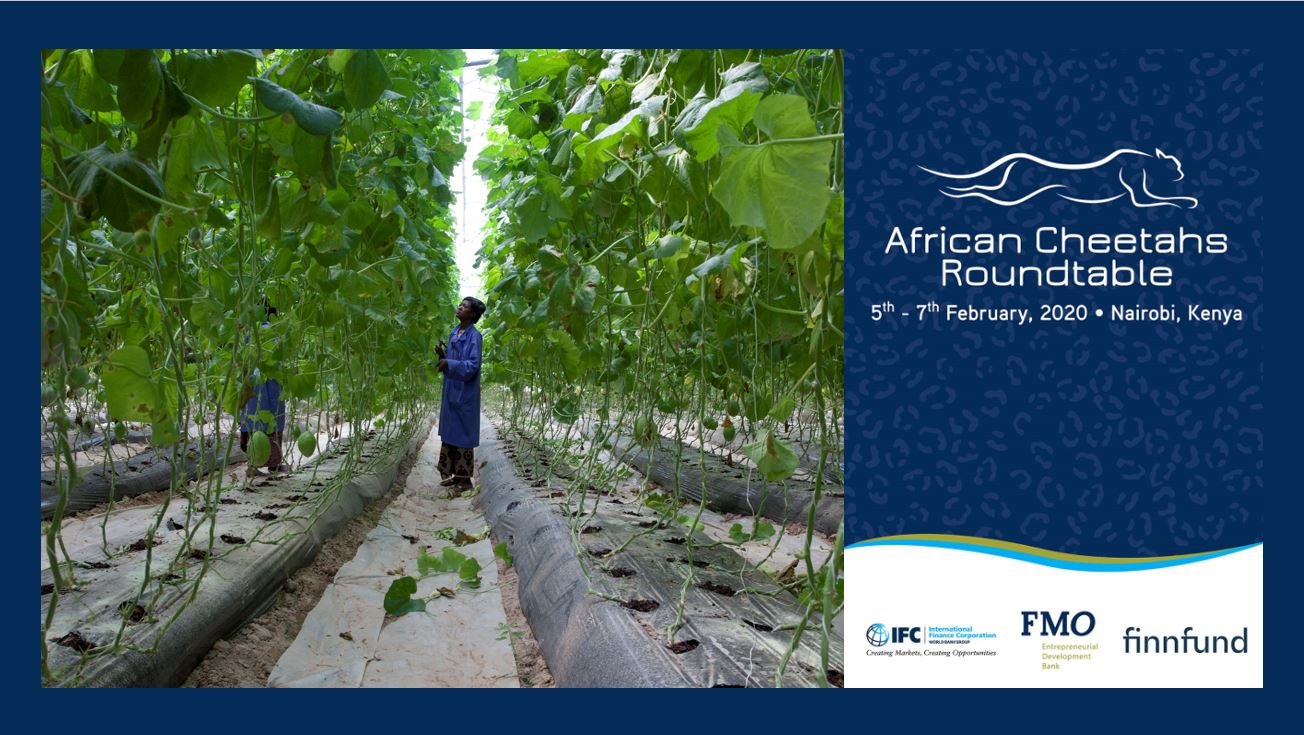Bringing together executives of Africa's most promising, fast-growing agribusiness
Last week, the African Cheetahs Roundtable was held in Nairobi, Kenya. Development finance institutions FMO, IFC, and Finnfund brought together executives of Africa's most promising, fast-growing agribusiness companies (the "Cheetahs") for a thought-provoking, interactive two-day roundtable. Exclusively for this roundtable, Prof. Peer Ederer analyzed strategic challenges faced by Cheetahs and explored solutions with the participants. Based on his analysis, Prof. Ederer wrote an opinon article which was published by Kenya's Business Daily:
The keys to boosting Africa's food production
By: Peer Ederer, Scientist and entrepreneur
The foremost challenge of our world is to feed its population with sufficient and high-quality food on a basis which is long term sustainable with the resources of our planet.
Food production goes beyond the farmer - it also extends to governments, policy, and the private sector. This week, International Finance Corporation (IFC), Finnfund and FMO convened close to 40 small and medium-sized enterprises working in agribusiness and food production in Africa, to discuss the challenges and opportunities in Africa's burgeoning argiculture.
The difficult reality is that, as of today, the global food system is not doing a good enough job. For instatnce, every third child in the world under the age of five suffers from stunting or obesity, a condition likely to impair its mental and physical condition for an entire lifetime. At the same time, water and biodiversity resources are not sufficiently taken care of, and adapting to climate change is insufficient. The problem can only get worse. Until 2050, the world's food industry will need to double its protein supply in order to feed the ten billion people. Around 50 percent of that increased food demand will be required in Africa, another 30 percent in Asia.
There is only one viable solution arena that solves this crisis: rapid and effective deployment of technologies in African farming and food production. The range of technologies covers everything from genetic optimization of both plants and animals, robotization, and mechanization of methods, to data science and artificial intelligence. The hope and the possibility of the use of technology are that African farming and food production can leapfrog towards precision agriculture and food production.
To produce enough of its food - and even become a food exporter - in harmony with the resources which its grand nature provides. This vision can only become true with entreprenurs who develop the business models that fit such technologies with the unique requirements and operating environments of African societies.
Such role models exist, for instance EthioChicken in Ethiopia or NicheCocoa in Ghana. These companies are created and led by entrepreneurs and inspired top leadership teams, who use the tools of business, their ingenuity and their discipline to create sizeable value for the customers they serve, for the countries in which they operate, and for the shareholders who own them. They are path-leading examples of what is possible and necessary in African agricultural and food production. How they have achieved success, where they intend to go from here, and what are the challenges and opportunities which they are facing going forward, will be analyzed in detail at the Cheetah Round Table in Nairobi in February 2020, at the invitation of FMO, Finnfund and IFC.



